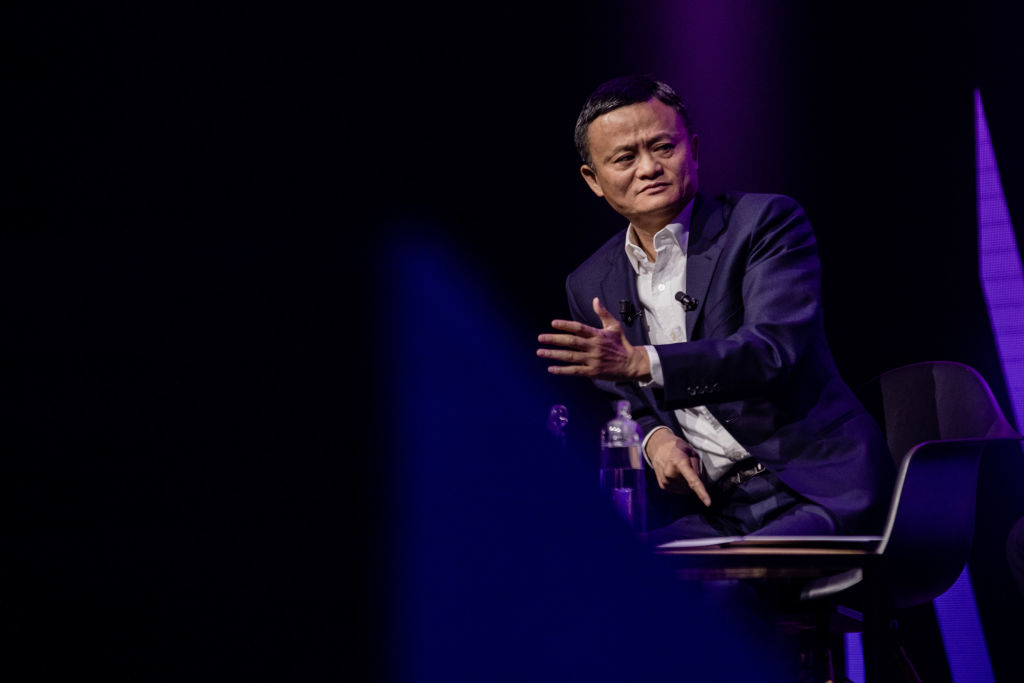
Editor's note: Matteo Giovannini is a finance professional at the Industrial and Commercial Bank of China in Beijing and a member of the China Task Force at the Italian Ministry of Economic Development. The article reflects the author's views and not necessarily those of CGTN.
Innovation has quickly risen in importance, becoming the major component of countries and national champions' strategic agendas in the post-pandemic era. It offers the opportunity to rethink or, in some way, revolutionize the way business has been conducted for entire decades by leveraging large amounts of data and the widespread use of technologies.
Alibaba Group Holding has recently unveiled a revolutionary new manufacturing pilot called Rhino Digital Factory, representing an advanced digital manufacturing infrastructure that is expected to initially target small and medium enterprises (SMEs), the most affected by the economic consequences of the outbreak of the novel coronavirus pandemic, and revolutionize the way a company can monitor and operate the entire value chain.
The new manufacturing pilot is part of a much broader strategy introduced by Jack Ma in a 2017 letter to shareholders. It includes new retail, new finance, new technologies and new energy, and follows the 2018 launch of Freshippo, a retail food store chain that offers a revolutionary shopping experience to customers by combining online and offline.
Another important milestone came when in preparation for Alibaba's biggest event, the Singles Day shopping event on November 11, the Chinese logistics firm majority-owned by Alibaba Cainiao opened a warehouse in Wuxi, a city in the east of China, equipped with more than 700 robots able to use automated driving technology to pick up a parcel and deliver it to another section of the warehouse where the delivery firm can collect it.
Jack Ma's strategic plan and the important achievements in automatization are at the basis of the concept of today's digital factory, which aims to provide SMEs with an efficient digital manufacturing infrastructure that could serve to totally change the way China designs, produces and distributes goods to market.
Alibaba's cloud-based manufacturing supply chain could help improve the general level of efficiency for companies and factories by reducing costs associated with accumulated levels of inventories and time-to-market while boosting profitability.

Jack Ma, chairman of Alibaba Group Holding Ltd. /Getty
Jack Ma, chairman of Alibaba Group Holding Ltd. /Getty
The technological-driven infrastructure created by Alibaba is also going to provide an extremely high time of reaction to change in the markets, such as shifting in consumers demand and trends, as well as a high level of customization according to the buyers' needs without incurring in extra costs or a slowdown of the entire manufacturing process.
The key to the future success of the new concept of digital factory proposed by Alibaba is the abundance of data the company holds through its e-commerce platform and the integration of technologies covering the entire value chain, starting from the booking of goods online through to factory production and ending with distribution on the market.
It is not a coincidence that the new manufacturing pilot will initially focus on clothing, an industry that offers an easier, faster and cheaper transition from mass production to customization through digital automation before the cloud-based system can be deemed suitable for being extended to other sectors that are characterized by a higher level of complexity in terms of production.
The new technology is also expected to be an extremely useful digital tool in the hands of key figures belonging to the leadership of manufacturing companies, including chief financial officers, for the possibility of squeezing costs and increasing key performance indicators (KPIs) accuracy and precision, and chief operating officers, for the opportunity to dramatically improve the entire manufacturing operations management.
In the 20th century, Japanese lean management and quality management business philosophies under the concept of Kaizen, an improvement of operations' method based on the elimination of waste in manufacturing and adopted as a core value by Toyota, strongly influenced American businesses.
U.S. companies admired the Toyota Way so much that they started to implement the concept of Kaizen, Just in Time and Lean Manufacturing within their factories. The concepts later served as the basis for the development of Motorola's Six Sigma and Lean Six Sigma models that became popular under Jack Welch's leadership at General Electric and are still used and studied today.
In this context, the revolutionary Chinese tech-powered manufacturing supply chain could aspire to become the global standard of the 21st century, replacing the Japanese and American concepts and practices to influence not only the transformation of China's four trillion U.S. dollar manufacturing sector but also to become the global manufacturing standard that is going to be described on future business management books and taught as part of the curriculum in top MBA programs around the world.
(If you want to contribute and have specific expertise, please contact us at opinions@cgtn.com.)